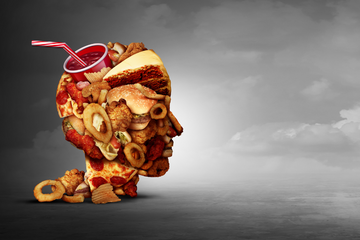The consumption of ultra-processed foods has surged in recent years, largely due to their convenience, affordability, and extended shelf life. However, mounting evidence indicates that these foods can be detrimental to your health.
A recent unpublished study of over 500,000 people found that eating higher levels of ultra-processed food may shorten life spans by more than 10%. The risk further increased to 15% for men and 14% for women once the data was adjusted, according to lead author Erikka Loftfield, an investigator at the National Cancer Institute in Bethesda, Maryland.
In this article, we will delve into which ultra-processed foods are most strongly associated with this elevated risk and the mechanisms by which they may affect health.
What Exactly Are Ultra-Processed Foods?
Ultra-processed foods are foods that are most altered from their original state, crafted from industrial formulations primarily or entirely composed of food-derived substances and additives, with little to no whole foods included.
These foods often contain high levels of sugars, fats, salt, artificial colors, flavors, preservatives, and other additives designed to enhance flavor, texture, and shelf life.
Some ultra-processed foods carry more of a risk than others, with highly processed meat and soft drinks topping the list of subgroups most strongly associated with mortality risk.
The Health Consequences of Specific Types of Ultra-Processed Foods
Sugary Beverages:
- Examples: Soft drinks, energy drinks, and sweetened fruit juices.
- Health Impact: High in added sugars and calories but low in nutritional value, these drinks are linked to obesity, type 2 diabetes, cardiovascular diseases, and metabolic syndrome.
Diet Soft Drinks:
- Examples: Most diet drinks, due to their inclusion of artificial sweeteners like aspartame, acesulfame potassium, and stevia, along with other additives absent in whole foods.
- Health Impact: Consumption of diet beverages has been associated with an increased risk of early death from cardiovascular disease, as well as the development of dementia, type 2 diabetes, obesity, stroke, and metabolic syndrome, which can lead to heart disease and diabetes.
Processed Meats:
- Examples: Bacon, hot dogs, sausages, ham, corned beef, jerky, and deli meats.
- Health Impact: Often high in sodium, nitrates, and saturated fats, studies have linked red and processed meats to bowel and stomach cancers, heart disease, diabetes, and early death from any cause.
Packaged Snacks and Baked Goods:
- Examples: Chips, crackers, cookies, and cakes.
- Health Impact: These foods typically contain high levels of trans fats, refined sugars, and sodium. Regular consumption can lead to weight gain, insulin resistance, and cardiovascular diseases.
Instant Noodles and Soups:
- Examples: Ramen noodles, cup noodles, and instant soups.
- Health Impact: These products often have high levels of sodium, unhealthy fats, and preservatives. Frequent consumption is linked to metabolic syndrome, hypertension, and poor nutrient intake.
Frozen and Ready-to-Eat Meals:
- Examples: Frozen pizzas, microwaveable dinners, and packaged sandwiches.
- Health Impact: These meals are usually high in calories, unhealthy fats, and sodium while being low in essential nutrients. They contribute to obesity, cardiovascular diseases, and type 2 diabetes.
Mechanisms Linking Ultra-Processed Foods to Mortality
Ultra-Processed Foods & Nutrient Imbalance:
Ultra-processed foods are often deficient in essential nutrients such as vitamins, minerals, and fiber. Their high energy density but low nutritional quality can lead to nutrient deficiencies and contribute to chronic diseases. High
Ultra-Processed Foods & Caloric Intake:
These foods are engineered to be hyper-palatable, often leading to overeating and excessive caloric intake, which are major risk factors for obesity and related health conditions.
Ultra-Processed Foods & Inflammation:
Additives, preservatives, and artificial ingredients in ultra-processed foods can promote inflammation and oxidative stress, which are underlying factors in many chronic diseases, including cardiovascular diseases and cancer.
Ultra-Processed Foods & Gut Health:
Ultra-processed foods can negatively impact gut microbiota, leading to dysbiosis. A healthy gut microbiota is crucial for immune function, metabolism, and overall health.
Geoffrey Mount Varner, MD, MPH, notes, "There is a clear link between ultra-processed foods and various diseases such as diabetes, cancer, heart disease, erectile dysfunction, and many others. It is now more important than ever in human history to monitor what you eat and to maximize supplements such as vitamins D and B12, omega-3 fatty acids, antioxidants, and probiotics, which can help with all the previously mentioned diseases."
Conclusion: Reduce Ultra-Processed Foods for Better Health & Longevity
A growing body of research highlights the significant health risks associated with consuming ultra-processed foods. By understanding which foods pose the greatest risks and the mechanisms through which they affect health, you can make more informed dietary choices.
Reducing intake of ultra-processed foods and opting for whole, minimally processed foods can significantly enhance overall health and longevity. Adopting healthier eating habits requires individual effort and collective action, which can help turn the tide of diet-related chronic diseases, paving the way for a healthier, #ShieldStrong lifestyle.







